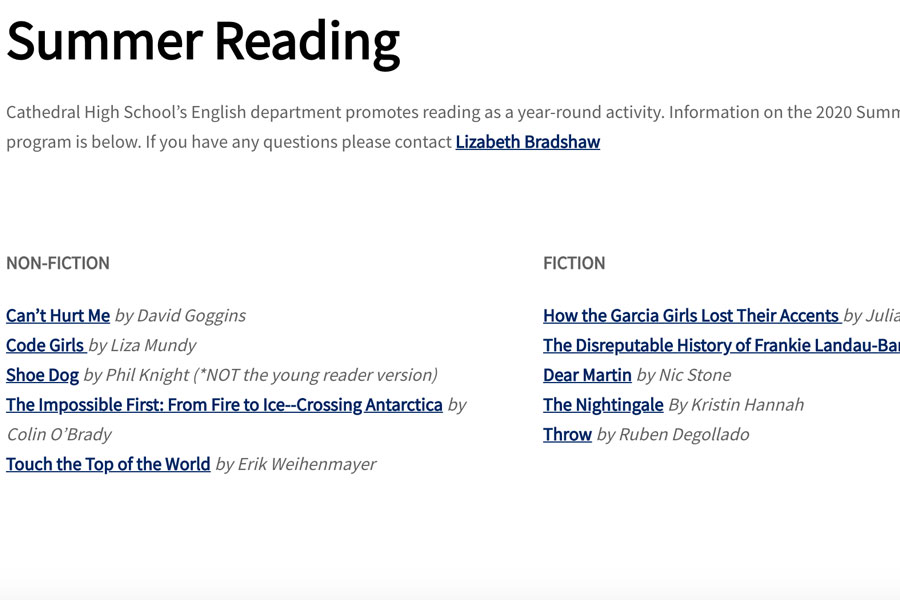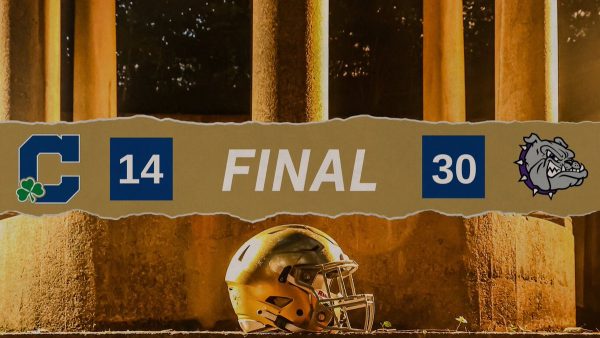Changes made to 2020-2021 summer reading
Goal of program is for students to maintain academic skills
What perhaps was one of the strangest school years in the history of Cathedral has just ended, and now that means two words: Summer reading.
“Summer reading is an opportunity to get more independent reading in, which is a big asset for college readiness and success. We have always had a summer reading program at Cathedral, though it’s gone through different (changes) in order to give people more opportunities to have choice in what they read,” said Mrs. Lizabeth Bradshaw, English teacher and arts and humanities co-director.
Students are required to complete their reading every year before the start of the school year. Bradshaw noted that because of the time away from formal classes, “there can be a lot of loss in learning and skills, so having a pleasurable summer reading program is one way to close the learning gap that happened between May and August.”
One of the changes made to the program this year involved the English department opening the book selection to the entire faculty. “We asked people to give suggestions. We probably had about 10 non-English teachers give ideas, as well as many of the English faculty, and then once we had that longer list, a smaller committee of English teachers took a look at those options to try to find a variety for different types of readers, different ages, different genders and people who have different reading needs,” she said.
Another change being made for this year is all students have to choose only one of the Holy Cross books, whereas previously upper level classes and honors classes had to select two books to read. However, students in the two higher level 11 and 12 IB classes and AP Literature classes still have to read two books.
The last significant change being made to the program is instead of students having to write journal entries for their books, “they will instead be asked to bring a print version of the book to class and be given a couple of prompts to do in-class writing. They will still be asked to support their responses with evidence from the text in the form of direct quotes, but we hope that the in-class experience will yield a more authentic writing sample,” Bradshaw said.
Bradshaw said it is important that students have their own print copy of their summer reading book for annotation. Students should not share a book with a sibling or friend. eBooks also will not be accepted for the in-class assignment.
Summer reading has always been due on the first full day of school, but “since our back-to-school plans are slightly up in the air right now, we’re not quite sure of that due date,” Bradshaw said.
The school website also been updated to include summer reading information.

Ava Amos is a senior and is the co-editor-in-chief of the Megaphone staff. She is a member of the varsity softball team and enjoys volunteering with the...







